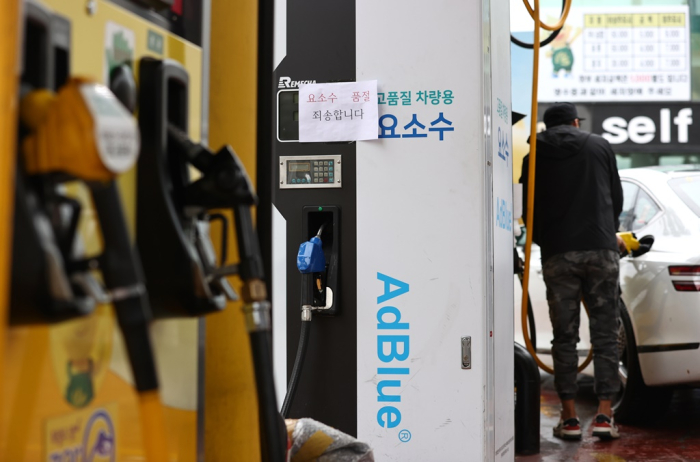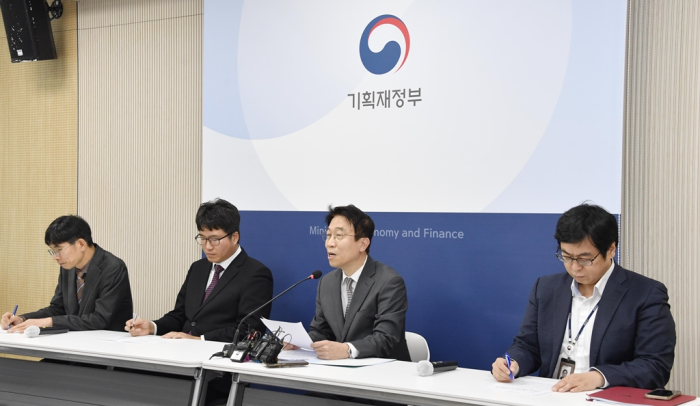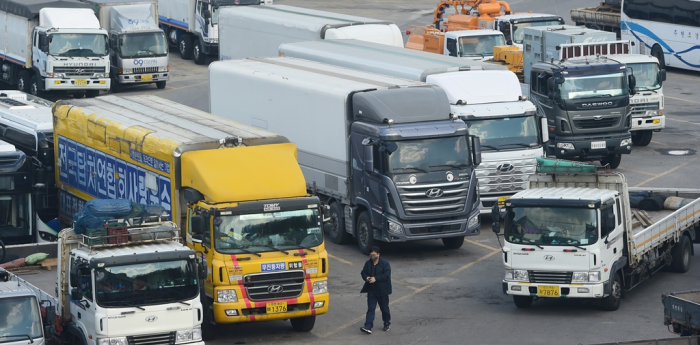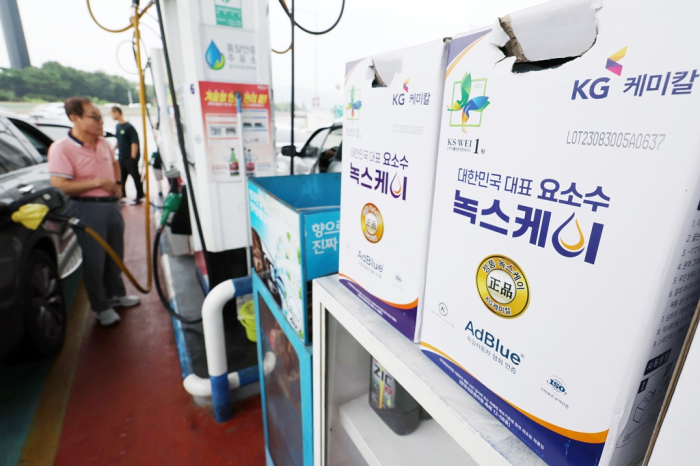South Korea to support urea purchases outside China, boost reserves
With growing concerns over the repeat of a supply crunch, Seoul comes under fire for its unpreparedness
By Dec 06, 2023 (Gmt+09:00)
LG Chem to sell water filter business to Glenwood PE for $692 million


Kyobo Life poised to buy Japan’s SBI Group-owned savings bank


KT&G eyes overseas M&A after rejecting activist fund's offer


StockX in merger talks with Naver’s online reseller Kream


Mirae Asset to be named Korea Post’s core real estate fund operator



The South Korean government plans to offer financial support to domestic companies when they import urea, a substance used in diesel vehicles and fertilizers, from countries other than China amid growing concerns over China’s export delays of the material.
The Seoul government on Wednesday also said it will significantly increase its stockpiles of urea, known as diesel exhaust fluid (DEF) when used for vehicles, to prevent a repeat of a urea supply crunch in 2021.
“The cost of importing urea from a country other than China is 10-20% higher and most of this is logistics costs. Supply disruptions to urea can happen any time of the year. We need to create a support system, including covering logistic costs,” said a trade ministry official after a meeting of related ministries.
Under a crude oil import diversification program, Korea currently provides partial support for oil importers’ transport costs if the crude comes from outside the Middle East.
Korea imports over 90% of its urea supply from China because it is cheaper and easier to buy from the neighboring country rather than from as far as Saudi Arabia, which makes high-quality urea products. Korea also imports the chemical from Japan and Vietnam.
The ratio of South Korea’s urea imports from China vs other countries
Unit:%
Source: The Korea Customs Service
The ministry plans to help domestic companies diversify their urea purchase channels away from China by compensating them for the price differences caused by higher logistics costs.
Government stockpiles of urea for vehicles stand at 3,000 tons, sufficient for three months. Seoul said it will boost reserves to 12,000 tons, enough for 3.7 months, as early as possible, through purchases from Saudi Arabia and other countries.
MEMORIES OF PANIC BUYING IN 2021
Earlier this week, Korean companies reported their imports of fertilizer and emissions-reducing chemical was taking unusually long to pass through Chinese customs. Some even reported a complete halt to the customs clearance process.

Seoul said it was consulting Beijing to prevent disruptions to urea supplies. Korean government officials said they understood there were no political motives behind the customs delays but economic factors, mainly due to tight urea supplies within China.
However, the issue has raised concerns among Korean officials and industry watchers of a repeat of 2021's supply crunch when China effectively halted exports of urea – a type of nitrogen used as fertilizer in agriculture as well as to curb diesel and industrial emissions.
The ban triggered panic buying among Korean drivers of diesel cars and trucks as they were required to use urea solutions to cut emissions. They resorted to government rations while officials vowed to secure alternative suppliers.
DEF is made with urea and deionized water. Korea’s DEF producers such as Lotte Fine Chemical Co., Hu-Chems Co. and KG Chemical Corp. mostly import urea from China.

KOREA’S TOO-HEAVY RELIANCE ON CHINA
The feared industrial disruptions reveal Korea’s heavy reliance on China for key raw materials and its supply chain vulnerability.
According to trade ministry data obtained by ruling People Power Party lawmaker Kim Sung-won, as of October there were 393 imported goods of which over 90% of each item came from a specific country.
China topped the list with 216 products, or 55% of the total, followed by Japan with 51 products, or 13%, and the US with 37 goods, or 9.4%.
Korea imports three-fifths of its needs for chip wafer-producing raw materials such as gallium, germanium and beryllium from China. Korea is home to the world’s two largest memory chipmakers – Samsung Electronics Co. and SK Hynix Inc.

China also accounts for nearly half of Korea’s imports of ethylene, a base stock widely used in the chemical and petrochemical industries.
The Korean economy’s growth strategy has long been based on value-added, high-end products, taking advantage of China’s cheap labor and readily available raw materials.
Write to Han-Shin Park and Kyung-Min Kang at phs@hankyung.com
In-Soo Nam edited this article.
-
 Supply chainChina’s urea halts raise specter of another logistics crisis in Korea
Supply chainChina’s urea halts raise specter of another logistics crisis in KoreaDec 04, 2023 (Gmt+09:00)
3 Min read -
 Supply chainKorea’s heavy dependence on China for raw materials deepens
Supply chainKorea’s heavy dependence on China for raw materials deepensSep 12, 2023 (Gmt+09:00)
4 Min read -
 Supply chainDeepening diesel exhaust fluid crisis puts Korea’s key industries at risk
Supply chainDeepening diesel exhaust fluid crisis puts Korea’s key industries at riskNov 05, 2021 (Gmt+09:00)
6 Min read -
 Supply chainUrea crisis lays bare South Korea’s heavy dependence on China
Supply chainUrea crisis lays bare South Korea’s heavy dependence on ChinaNov 14, 2021 (Gmt+09:00)
4 Min read


